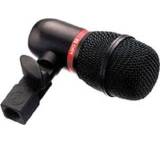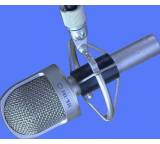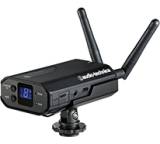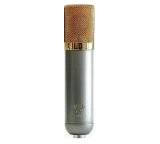Mikrofon Testberichte (S. 16/21)
Diese Quellen haben wir neutral ausgewertet (letzter Test vom ):
Mikrofone Bestenliste

Gesangsmikrofon

Funkmikrofon

Kamera-Mikrofon

Handy-Mikrofon
749 Ergebnisse entsprechen den Suchkriterien
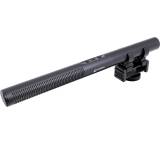
Sehr gut
1,4
- Typ: Richtmikrofon
- Technologie: Elektret, Kondensator
- Richtcharakteristik: Superniere
Zum Produkt

Gut
2,0
- Typ: Instrumentenmikrofon, Gesangsmikrofon
- Technologie: Kondensator
- Richtcharakteristik: Niere
Zum Produkt
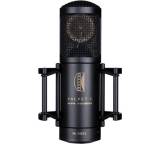
Sehr gut
1,0
Brauner Valvet X Röhren Großmembranmikrofon
- Typ: Instrumentenmikrofon, Gesangsmikrofon
- Technologie: Röhre
- Anschluss: XLR
Zum Produkt
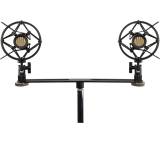
Sehr gut
1,0
- Typ: Instrumentenmikrofon
- Technologie: Kondensator
- Richtcharakteristik: Niere
Zum Produkt
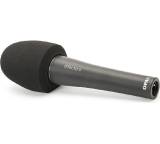
Sehr gut
1,0
DPA Microphones d:facto II Interview Mic
- Typ: Reportermikrofon
- Technologie: Kondensator
- Richtcharakteristik: Omnidirektional (Kugel)
Zum Produkt
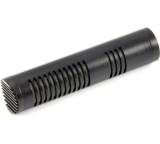
Gut
1,6
- Typ: Kamera-Mikrofon, Richtmikrofon
- Technologie: Elektret, Kondensator
- Richtcharakteristik: Superniere
Zum Produkt
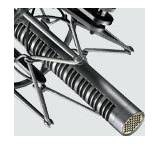
ohne Endnote
- Typ: Richtmikrofon
- Technologie: Röhre
- Richtcharakteristik: Superniere, Direktional (Keule)
Zum Produkt
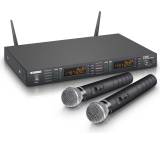
Sehr gut
1,0
LD Systems WS 1G8 HHD2
- Typ: Funkmikrofon, Gesangsmikrofon
- Technologie: Dynamisch
- Richtcharakteristik: Niere
Zum Produkt
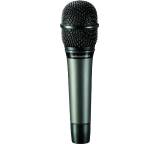
Sehr gut
1,0
- Typ: Gesangsmikrofon
- Technologie: Dynamisch
- Richtcharakteristik: Hyperniere
Zum Produkt
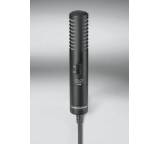
Befriedigend
3,0
- Technologie: Kondensator
- Richtcharakteristik: Stereo
- Anschluss: Klinke (3,5 mm)
Zum Produkt
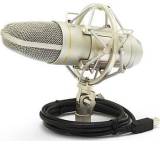
ohne Endnote
- Typ: Tischmikrofon
- Technologie: Kondensator
- Richtcharakteristik: Niere
Zum Produkt
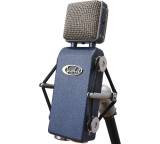
Sehr gut
1,0
Violet Design Amethyst Vintage
- Typ: Instrumentenmikrofon, Gesangsmikrofon
- Technologie: Kondensator
- Anschluss: XLR
Zum Produkt
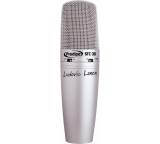
Gut
2,0
- Typ: Instrumentenmikrofon, Gesangsmikrofon
- Technologie: Kondensator
- Richtcharakteristik: Bidirektional (Acht), Direktional (Keule), Omnidirektional (Kugel)
Zum Produkt
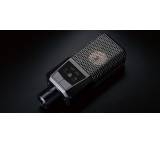
Sehr gut
1,5
- Typ: Instrumentenmikrofon, Gesangsmikrofon
- Technologie: Kondensator
- Richtcharakteristik: Niere
Zum Produkt
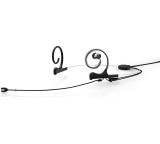
Sehr gut
1,0
DPA Microphones d:fine In-Ear (Dual Ear Mount, Single In-Ear)
- Typ: Gesangsmikrofon
- Technologie: Kondensator
- Richtcharakteristik: Niere, Omnidirektional (Kugel)
Zum Produkt
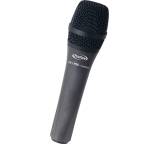
Gut
1,7
Prodipe TT1 Pro-Lanen
- Typ: Gesangsmikrofon
- Technologie: Dynamisch
- Anschluss: XLR
Zum Produkt
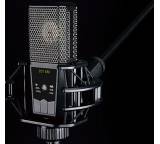
Sehr gut
1,0
- Typ: Instrumentenmikrofon, Gesangsmikrofon
- Technologie: Kondensator
- Richtcharakteristik: Niere
Zum Produkt
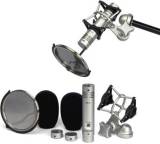
Gut
2,0
- Typ: Instrumentenmikrofon, Gesangsmikrofon
- Technologie: Kondensator
- Richtcharakteristik: Niere, Omnidirektional (Kugel)
Zum Produkt
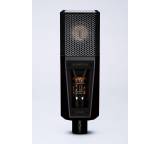
Sehr gut
1,0
- Typ: Instrumentenmikrofon, Gesangsmikrofon
- Technologie: Röhre
- Richtcharakteristik: Superniere, Bidirektional (Acht), Breite Niere, Niere, Omnidirektional (Kugel)
Zum Produkt
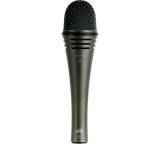
Sehr gut
1,5
- Typ: Instrumentenmikrofon, Gesangsmikrofon
- Technologie: Dynamisch
- Richtcharakteristik: Niere
Zum Produkt
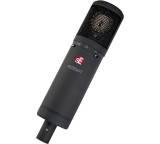
Gut
2,0
- Typ: Instrumentenmikrofon, Gesangsmikrofon
- Technologie: Kondensator
- Richtcharakteristik: Niere
Zum Produkt
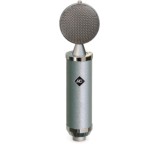
Sehr gut
1,0
Microtech Gefell CMV 563 / M7S
- Typ: Gesangsmikrofon
- Technologie: Kondensator
- Richtcharakteristik: Niere
Zum Produkt
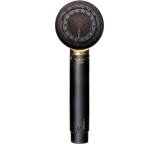
Sehr gut
1,0
- Typ: Instrumentenmikrofon, Gesangsmikrofon
- Technologie: Kondensator
- Richtcharakteristik: Niere
Zum Produkt
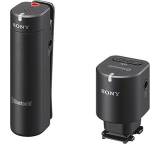
Gut
2,0
- Typ: Kamera-Mikrofon, Funkmikrofon
- Technologie: Elektret, Kondensator
Zum Produkt
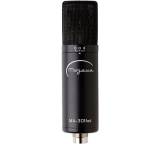
Gut
2,0
- Typ: Instrumentenmikrofon, Gesangsmikrofon
- Technologie: Kondensator
- Richtcharakteristik: Bidirektional (Acht), Niere, Omnidirektional (Kugel)
Zum Produkt
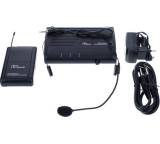
Gut
2,0
Thomann t.bone TWS One B Headset
- Typ: Funkmikrofon
- Technologie: Kondensator
- Richtcharakteristik: Niere
Zum Produkt
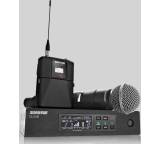
Sehr gut
1,0
- Typ: Funkmikrofon, Reportermikrofon, Instrumentenmikrofon, Gesangsmikrofon
- Technologie: Kondensator
- Richtcharakteristik: Superniere, Niere
Zum Produkt
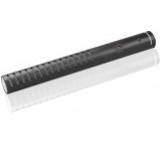
Sehr gut
1,4
- Typ: Kamera-Mikrofon, Richtmikrofon
- Technologie: Elektret, Kondensator
- Richtcharakteristik: Superniere, Direktional (Keule)
Zum Produkt
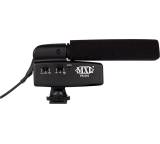
Sehr gut
1,4
MXL Mikrofone FR-310 (mit Smartphone-Halterung MM-VE 001)
- Typ: Kamera-Mikrofon, Richtmikrofon
- Technologie: Elektret, Kondensator
- Richtcharakteristik: Superniere
Zum Produkt
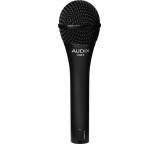
Sehr gut
1,5
Audix OM3
- Typ: Instrumentenmikrofon, Gesangsmikrofon
- Technologie: Dynamisch
- Anschluss: XLR
Zum Produkt
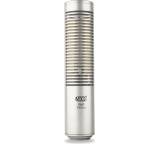
Sehr gut
1,0
- Typ: Gesangsmikrofon
- Technologie: Bändchen
- Richtcharakteristik: Bidirektional (Acht)
Zum Produkt
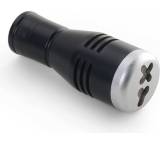
Gut
2,3
- Technologie: Elektret, Kondensator
- Richtcharakteristik: Stereo, Niere
- Anschluss: Klinke (3,5 mm)
Zum Produkt
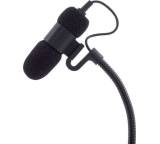
ohne Endnote
- Typ: Instrumentenmikrofon
- Technologie: Kondensator
- Richtcharakteristik: Niere
Zum Produkt
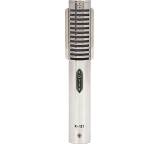
Sehr gut
1,5
- Typ: Instrumentenmikrofon, Gesangsmikrofon
- Technologie: Bändchen
- Richtcharakteristik: Bidirektional (Acht)
Zum Produkt
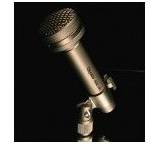
Sehr gut
1,5
- Typ: Instrumentenmikrofon
- Technologie: Kondensator
- Anschluss: XLR
Zum Produkt
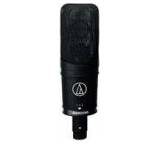
Sehr gut
1,0
- Typ: Instrumentenmikrofon, Gesangsmikrofon
- Technologie: Kondensator
- Anschluss: XLR
Zum Produkt
Tests
-

-
c't
- Ausgabe: 3/2025
- Erschienen: 01/2025
-
-

-
PC Magazin/PCgo
- Ausgabe: 4/2025
- Erschienen: 03/2025
- Seiten: 1
Mikrofon speziell für Gamer und Streamer?
Testbericht über 1 Mikrofonzum Test -
-

-
MAC LIFE
- Ausgabe: 11/2024
- Erschienen: 10/2024
- Seiten: 8
-



